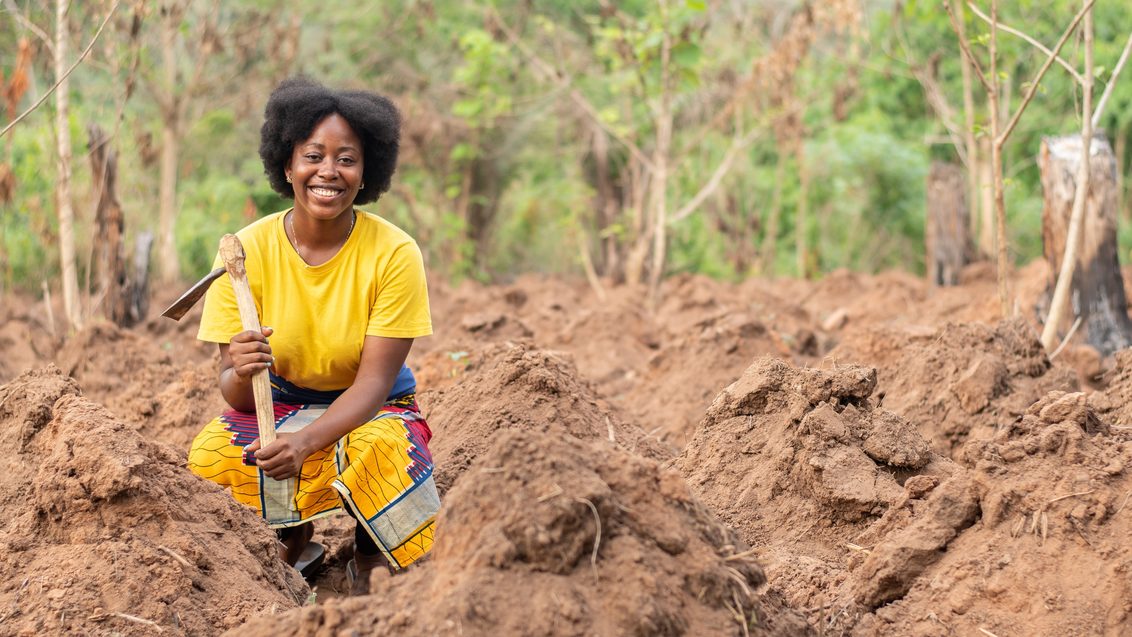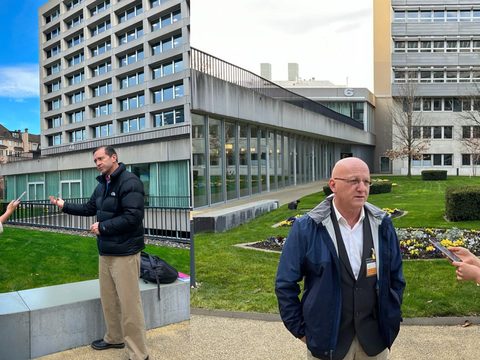We’re all standing on a crucial resource

Policymakers can help protect soil while meeting rising food demand
By Alva Kretschmer and Yuan Zhou
COP28 begins this week in Dubai. This year’s global climate summit seems more important than ever, given 2023’s record temperatures. The pressure to address climate change for the sustainable future of our planet has never been more urgent.
Talk about climate, and many people tend to look upwards. It’s easy to overlook a key factor right under our noses, or rather, our feet. But the UN dedicate an annual day to the importance of its health. World Soil Day is on December 5th, suitably bang in the middle of COP28.
In many languages, the word for “earth” describes both soil and the whole planet. And no wonder: Soil is an essential, non-renewable resource for agriculture. It provides the basis for producing food, fiber, fodder, and biomass. Put more drastically: We rely on soil for almost everything we eat. Soils also ensure vital ecosystem services, such as water regulation and nutrient cycling. They support biodiversity and play a key role in storing carbon. Healthy soils alleviate the rise in greenhouse gases and thus help mitigate the climate crisis.
That was the good news.
But soil resources are facing huge pressures. Humans cause many of them. About one-third of the earth’s soil is degraded. We could run out of topsoil in just 60 years.
What about Africa and Asia?
That “one-third” figure is a global average. What about the areas in which our Foundation works? In Sub-Saharan Africa, about two-thirds of arable land suffer from soil degradation. The main reasons are erosion, acidification, and insufficient addition of nutrients. One major way to reverse this degradation, boosting soil health and fertility, would be to use more fertilizer. This must, of course, be done in a climate-smart and resource-efficient way. Greater use of mineral fertilizers needs to be limited and combined with more inputs of organic matter.
African farmers are painfully aware of their soils’ decline. However, most of them lack access to suitable fertilizers and other farm inputs, as well as the know-how to assess and restore their soils. Government policies – or lack of them – often also hinder farmers’ response to soil health challenges. The African Union recently postponed its Fertilizer and Soil Health Summit to 2024. The aim is for Heads of State and other high-level stakeholders to agree on a 10-year action plan. It is much needed!
In Asia, too, soil health issues persist. Here, the main drivers are agricultural intensification, overuse of inputs, monocropping, and deforestation. Much of the cropland is on slopes highly prone to erosion. The acidic, often heavily degraded soils, contain few nutrients and do not hold water well. This is especially true in Southeast Asia.
What can governments do?
To address these challenges, policymakers are increasingly including healthy soils in their environmental policies and legislation. However, the new initiatives are often at odds with other laws and state support that still largely target short-term agriculture productivity and intensification.
Policies cannot, of course, focus solely on soils. Policymakers in developing countries are also deeply concerned about food security, nutrition (World Bank, 2022), and economic development. The question is therefore: Which policy reforms can help raise farm productivity, while ensuring soil health is continuously improved over the long term? National policymakers who try to answer these questions confront difficult trade-offs.
Fortunately, several policy tools promote healthy soils and encourage farmers to do the same, while still meeting the immediate demand for agricultural output. Governments can, for example:
Support integrated nutrient management and scientific use of chemical and organic fertilizers.
Help farmers move to more careful, resource-efficient use of fertilizers and crop protection products.
Support adoption of recognized soil health interventions (e.g., crop rotation, low-till).
Provide incentives to farmers who adopt regenerative agricultural practices (including crop diversification, soil health, and water management). These incentives should include fair compensation for carbon sequestration and other ecosystem services.
Increase funding for soil research and establish long-term national monitoring systems to understand soil status.
Establish the enabling conditions for private sector-led innovations that are safe for humans and the environment, yet effective, and reach farmers rapidly and unbureaucratically.
Explore the potential of biological solutions for soil health, including the regulatory environment.
What are we doing?
Our Foundation is deeply committed to protecting soil health so that it can continue to fulfill its life-sustaining functions. For example, in partnership with The Nature Conservancy and other partners, we assessed the impact of government subsidies on soil health and 'green' agricultural development in China. The analysis provides evidence if and to what extent government subsidies benefitted soil health. It will help guide future Chinese policy on sustainable agriculture.
In Kenya, with AgVenture and smallholder out-growers, we are measuring soil carbon and soil health under crop rotations and regenerative ag practices. Our Indian team is working with farmers to promote reduced tillage, suitable application of soil microbials and vermicompost, soil-testing and recommendations, and balanced dosing of fertilizer. In Bangladesh, we are running a Climate-smart Technology Adaptation (CCICTA) initiative. This aims to generate carbon credits and incentivize farmers to adopt climate-smart agricultural practices, particularly tree plantation, and to reduce greenhouse gases. Over 20 years, CCICTA intends to reduce emissions from the new orchards by more than 1.3 million “tCO2eq” – i.e., metric tons of CO2 equivalent. On current projections, that would generate about $14.5 million in carbon credits for farmers and other project partners.
Our Foundation is also interested in a policy study. The aim would be to better understand the regulatory and “enabling environment” in five African and Asian countries. The study would take a close look at the roles of institutions, the value chain, private and non-profit sectors, and smallholders. We want to explore how each country’s regulations support or hamper innovations that enable farmers to grow productively and sustainably, while protecting the health of their soil. Examples include organic fertilizers or biological pest controls. The study should also increase understanding of how countries are supporting soil research and monitoring systems to understand soil conditions.
Would you like to contribute to this study? Then please reach out to our Policy Team at sfsa.policy@syngenta.com

